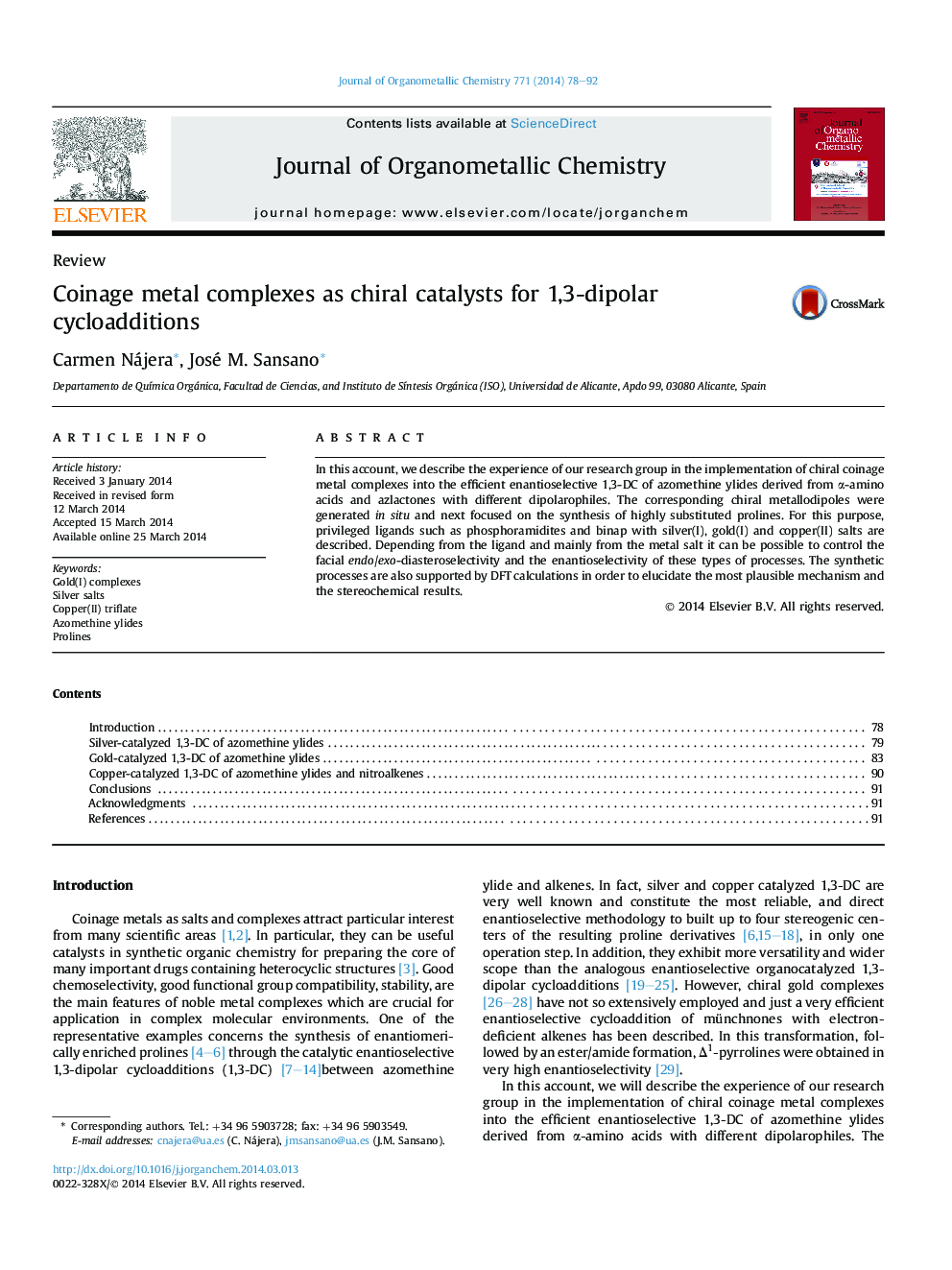| Article ID | Journal | Published Year | Pages | File Type |
|---|---|---|---|---|
| 1325366 | Journal of Organometallic Chemistry | 2014 | 15 Pages |
•Highly diastereo- and enantioselective 1,3-dipolar cycloadditions are described.•Chiral complexes of coinage metals are excellent catalysts.•Fine tunable chiral complexes allow the synthesis of a single steroisomer.•Up to four stereogenic centers are unambiguously generated.•A set of enantiomerically enriched prolines are inhibitors of hepatitis C virus.
In this account, we describe the experience of our research group in the implementation of chiral coinage metal complexes into the efficient enantioselective 1,3-DC of azomethine ylides derived from α-amino acids and azlactones with different dipolarophiles. The corresponding chiral metallodipoles were generated in situ and next focused on the synthesis of highly substituted prolines. For this purpose, privileged ligands such as phosphoramidites and binap with silver(I), gold(I) and copper(II) salts are described. Depending from the ligand and mainly from the metal salt it can be possible to control the facial endo/exo-diasteroselectivity and the enantioselectivity of these types of processes. The synthetic processes are also supported by DFT calculations in order to elucidate the most plausible mechanism and the stereochemical results.
Graphical abstractChiral coinage metal complexes of privileged ligands such as phosphoramidites and binap with silver(I), gold(I) and copper(II)salts catalyzed efficiently the enantioselective 1,3-DC of azomethine ylides derived from α-amino acids and azlactones with different dipolarophiles affording enantioenriched highly substituted prolines. DFT calculations supported all the experimental results and stereochemical outcomes.Figure optionsDownload full-size imageDownload as PowerPoint slide
